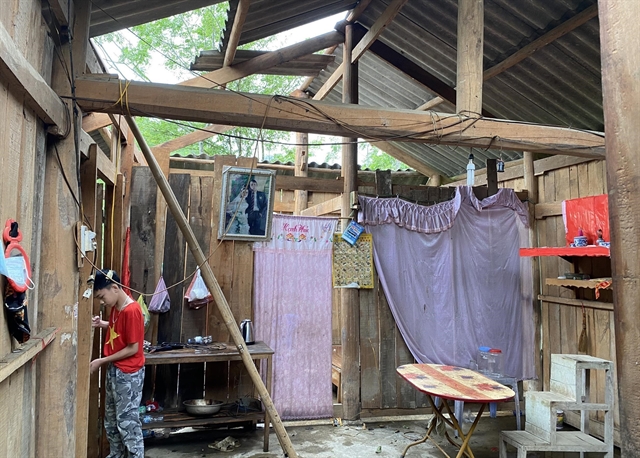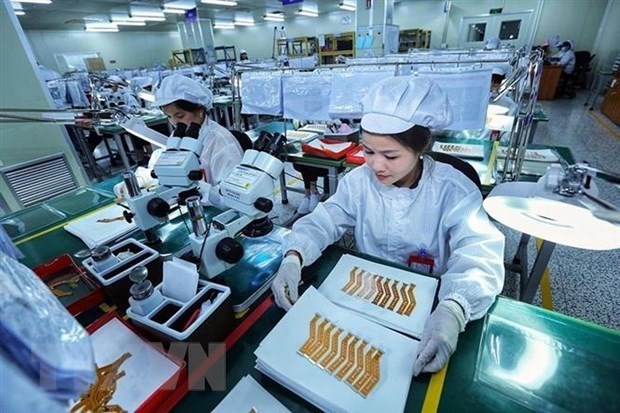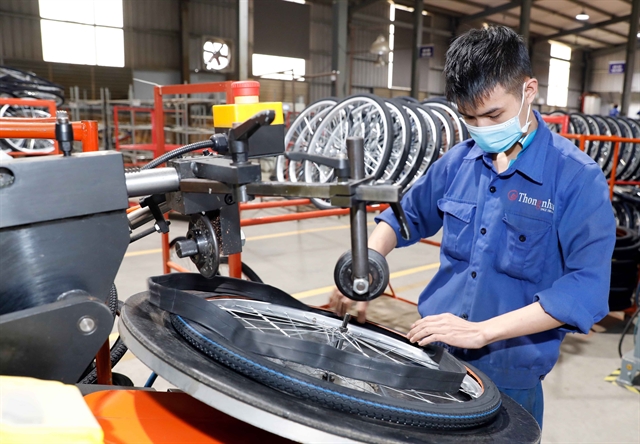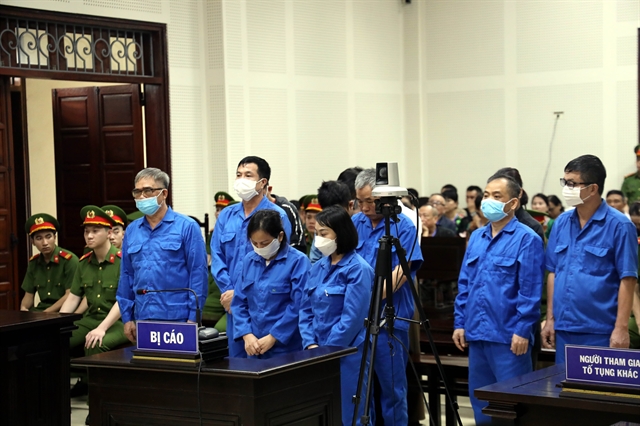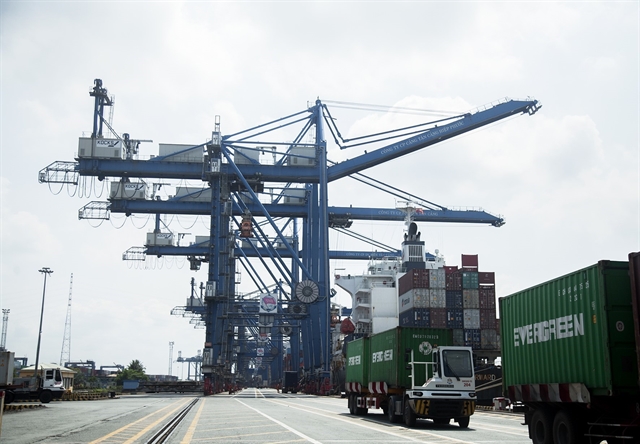 Economy
Economy

State-owned banks are finding it more difficult to increase charter capital, especially when they still have to pay dividends instead of keeping the money for this purpose.
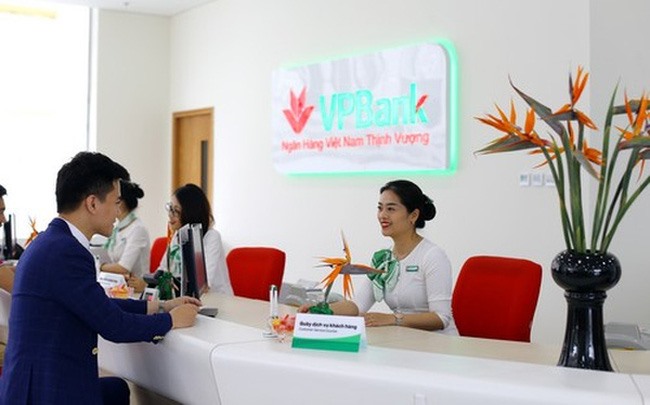 |
| State-owned banks are finding it more difficult to increase charter capital, especially when they still have to pay dividends instead of keeping the money for this purpose. — Photo cafef.vn |
HÀ NỘI — State-owned banks are finding it more difficult to increase charter capital, especially when they still have to pay dividends instead of keeping the money for this purpose.
It is estimated that the State budget will get an additional nearly VNĐ6.1 trillion (US$268.7 million) from the dividend payout of three State-owned banks – VietinBank, Vietcombank and BIDV – by the end of October this year.
VietinBank on September 19 announced it will pay cash dividend to shareholders for 2016. The payment rate will be 7 per cent, meaning that for each share, shareholders will receive VNĐ700 on one share holding. At this rate, the bank will pay dividend worth VNĐ2.6 trillion for 3.72 billion shares held by the stakeholders.
Of the total dividend, State capital representative State Bank of Việt Nam, which holds 64.46 per cent of VietinBank’s charter capital as of June 30, 2017, will receive VNĐ1.68 trillion. Bank of Tokyo-Mitsubishi UFJ, VietinBank’s strategic investor, will get VNĐ514 billion, thanks to its ownership of 19.73 per cent of VietinBank’s charter capital.
Previously, Vietcombank’s board of directors also approved to make an 8 per cent dividend payout on October 16. The bank will pay shareholders VNĐ800 per share. With nearly 3.6 billion shares listed on the HCM Stock Exchange, the value of the dividend payout will reach nearly VNĐ2.9 trillion.
SBV is also the largest shareholder of Vietcombank, owning more than 2.77 billion shares, or 77.1 per cent of the bank’s charter capital. The second-largest shareholder is Japanese Mizuho Bank Ltd, which owns nearly 540 million shares, or 15 per cent of the bank, while other shareholders own total 7.89 per cent of the bank’s capital. Thus, the State will receive more than VNĐ2.2 trillion from Vietcombank once the bank completes its dividend payout while Mizuho Bank Ltd will collect VNĐ431.7 billion.
With these dividend payout plans, the three banks will contribute nearly VNĐ6.1 trillion to the State budget this year. However, the banks will face difficulties as they cannot keep the money to increase charter capital to meet BASEL II standards as regulated by the central bank. According to statistics, the capital adequacy ratio (CAR) of the three banks is at 9 per cent; however, the ratio will reduce to below 8 per cent if BASEL II is applied in the country by 2020.
Besides, following the first half of this year, all three banks had total assets exceeding VNĐ1 quadrillion. The rapid increase in assets means the banks have to increase ownership equity quickly to ensure CAR does not fall below the safety margin.Therefore, if the group of banks fails to increase capital, it will result in a strong negative impact on the credit growth plan of the group as well as the credit expansion of the whole banking sector, according to an SBV official who declined to be named.
In fact, the three banks have tried to increase capital in the past but failed. Vietcombank could not sell more than 7 per cent of its capital to foreign counterparts due to the high market prices, even as investors buying large lots always want cheap prices. BIDV also failed to find a partner to sell up to 30 per cent of its stake as scheduled while VietinBank has not yet completed its merger with PG Bank due to certain issues, including swap rates.
This year, BIDV and Vietcombank also approved capital increasing plans of 13 per cent and 10 per cent to VNĐ38.63 trillion and VNĐ39.57 trillion, respectively, at their annual general meetings. However, so far, no further information on the issue has been published.
According to experts, banks find it difficult to find additional capital sources, especially in the context that foreign investors are not too keen on contributing capital to do business with Vietnamese banks as they can do business on their own in the form of branches or wholly-foreign owned subsidiaries. Besides this, the Government is also urging State-owned groups and corporations to accelerate the withdrawal of capital from the banking sector. Therefore, banks will face more challenges to increase the capital as they still have to pay dividend. — VNS

